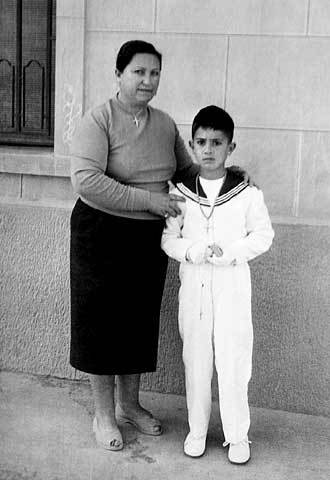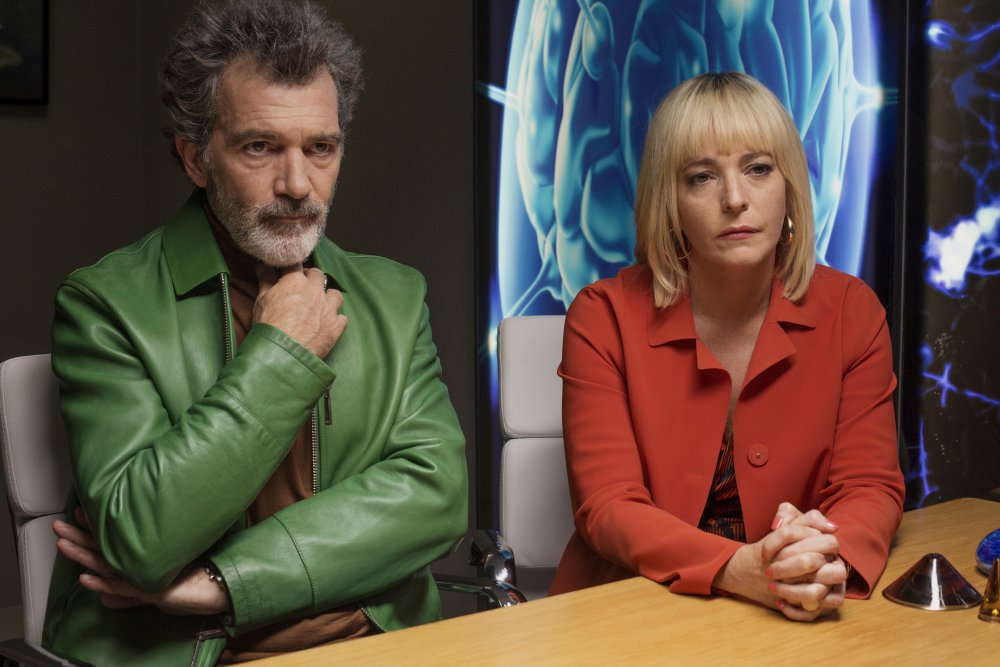Please visit response.fsu.edu for official FSU updates and resources.
How to Live with Eyes and Ears: Almodóvar
 To fancy a filmmaker is to fancy his shoes, his eyes, his legs, the way he drools when he sleeps, and the drugs he does. Pedro Mercedes Almodóvar Caballero, known on the screen simply as “Almodóvar,” fancies himself. Each film he writes is glazed with his life’s sticky resin, polished and bruised in tandem. Such eccentric sincerity is a phenomenon built over time, and understanding Almodóvar’s journey helps us understand what informs his filmmaking.
To fancy a filmmaker is to fancy his shoes, his eyes, his legs, the way he drools when he sleeps, and the drugs he does. Pedro Mercedes Almodóvar Caballero, known on the screen simply as “Almodóvar,” fancies himself. Each film he writes is glazed with his life’s sticky resin, polished and bruised in tandem. Such eccentric sincerity is a phenomenon built over time, and understanding Almodóvar’s journey helps us understand what informs his filmmaking.
Before telling saturated stories of rape, murder, and mothers, Almodóvar was on his way to priesthood. Despite being enrolled in a religious boarding school, a passion for the cinema began to fill the young Almodóvar’s veins. Under a Spanish dictatorship and without a direction to go, Almodóvar fled to Madrid at the ripe age of eighteen. Between writing articles (he’s just like me, etc. etc.), working at a flea market, and managing a telephone company, Almodóvar found time to create 8mm short films. As he was discovering his voice through the seventies, Spanish dictator Francisco Franco died, breaking open more boundaries for Almodóvar to become a free artist.
Despite being enrolled in a religious boarding school, a passion for the cinema began to fill the young Almodóvar’s veins. Under a Spanish dictatorship and without a direction to go, Almodóvar fled to Madrid at the ripe age of eighteen. Between writing articles (he’s just like me, etc. etc.), working at a flea market, and managing a telephone company, Almodóvar found time to create 8mm short films. As he was discovering his voice through the seventies, Spanish dictator Francisco Franco died, breaking open more boundaries for Almodóvar to become a free artist.
Even his first films, which were fittingly projected in bars and parties without sound, were overtly sexual. This can be deduced by viewing his filmography and the titles he chooses, such as “Dos putas, o Historia de Amor que Termina en Boda” and “Folle... Folle... ¡Fólleme Tim!” I find that these titles do not need to be translated to understand their nature.
Almodóvar has always used his voice to tell the stories of the underrepresented and things seen as “trashy,” a passion that has stood erect throughout his career. In this sense, the journey of Almodóvar as an artist has been an unspooling self-discovery, a journey of new experiences and digging deeper into his psyche for the essential. Almodóvar frees himself by telling stories that are uniquely his. For example, one of his latest films, Pain and Glory (2019), is the story of Spanish film director Salvador Mallo grappling with the re-release of his film, titled Sabor. A bit on the nose. Where most directors would be faulted in this, Almodóvar’s honest and humble filmmaking doesn’t paint characters as heroes or villains, just people. Making judgements in an act solely for the viewer, something that can be uncomfortable at moments, but also something infinitely more rewarding as a viewer.

An important motif in Almodóvar’s films is that of performance. It is impossible to get to the end of an Almodóvar film without at least one song being showcased, a wedding, or a “somnambulist ballet,” as a critic writes of a scene in Talk To Her (2002). This highlights a philosophy of cinema similar to that of Federico Fellini, that this sort of shameless showcasing is what cinema is about, bringing people together by showing people together. This communal nature and, again, shamelessness is a cornerstone of queer culture that informed how Almodóvar made films and who he made them for.


Comparing Almodóvar to Fellini is a key point to my understanding of the filmmaker. Fellini shines as a director that finds the truth through dichotomies. His films are abstract works of showmanship, but are also endlessly filled with humility and emotion. These different planes that Fellini works on engender a hysteric viewing experience. You love these people, you love every moment, but you’re not too sure why. Almodóvar’s contrast of deeply personal writing while also remaining detached, or even dismissive, makes the viewer the key orator of the text. We are the ones who have to understand these characters and their actions; we have to dig.
It is in these senses that I feel Almodóvar to be one of the most important filmmakers working today. He works as one of the only writers that cares about the modern experience of morality and storytelling, no matter how murky the water. He understands the key components of film, and almost more importantly, himself, and is able to use the tools at hand to express this. Is this not the only job a filmmaker has?
Almodóvar’s Volver will play at the ASLC on 3/2/22 at 7 and 10 PM.
Written by Rory Donohue
Art by Cassidy Elibol



